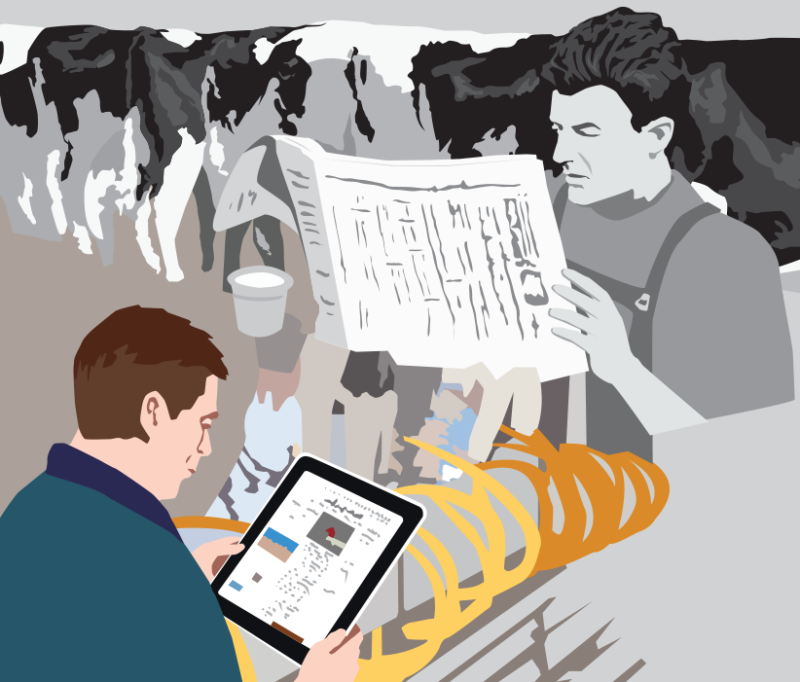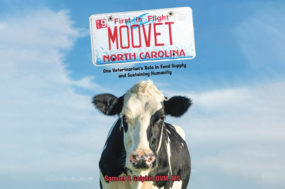Those living in European cities may have seen a tractor drive by them recently.
As of the writing of this column, farmers in the European Union are in the middle of an extensive protest that transcends country borders, languages and cultures. What started off as a week of demonstrations in Germany against the end of a fuel subsidy quickly spread across the European bloc, full with grievances against current agricultural policy, with tens of thousands of farmers taking to the streets.
Currently, in response to a summit that took place last week, the EU headquarters in Brussels, Belgium, are blockaded by long rows of large tractors, as well as surrounded by small fires fed by tires, branches and other debris. In France, manure spreaders have covered government offices, grocery stores and other buildings in slurry, while other establishments have been doused in milk. During this past week, farmers have blocked roads all over Europe, from Romania to Spain, in a show of solidarity.
The timing of the protests coincided with the scheduled summit on how Europe can meet climate-related targets. The EU has committed to cut emissions by 90% (from 2015 levels) by 2040 and to be carbon neutral by 2050. Agriculture accounts for 10% of European emissions and has been earmarked as a target area to focus on in addressing these goals. A draft proposition has called on farmers to halve their pesticide use, set aside 4% of their arable land every year and reduce fertilizer application by 20%.
Nonetheless, new environmental regulations are only a subset of the reasons why farmers are taking to the streets. Very few of them deny that climate change is a threat and that changes must be made across society. However, interviewed farmers state that they have faced financial pressure for a long time now. The rising cost of fuel and other inputs, coupled with receiving less support in the EU Common Agricultural Policy (the equivalent to the Farm Bill in the U.S.) have made it difficult for them to make a living. They feel that under these conditions, the new regulations would be a nail in their coffin.
Additionally, farmers are protesting the EU’s decision to import cheaper food. The EU is purportedly on the cusp of a major free trade deal with South American countries, the result of which would see an influx of beef, dairy and other foodstuffs that would cost less than for what EU farmers can produce them. EU farmers see this not only as a threat but as a hypocrisy, considering that South American agriculture is still contributing to the destruction of the rainforest. European farmers have already felt the impact of the EU allowing Ukrainian farm products onto the market without tariffs in response to the Russian invasion, since Ukraine has larger farms that can produce food for less.
According to reports, politicians are surprised at the scale of the protests. As a result, they have begun offering concessions. So far, they have removed the mandate to cut pesticide use by half, as well as the directive to set aside 4% of arable land every year. Additionally, in the forthcoming report on how the bloc can become carbon neutral, they removed language about cutting methane and nitrogen by 30%, as these greenhouse gases are associated with agriculture. They have also looked into introducing tariffs on some Ukrainian goods. Nonetheless, the farmers haven’t gone home yet. They’re looking for more.
Right now, farmers have Brussels’s attention. European Commission President Ursula von der Leyen has initiated “strategic dialogues” with farmer organizations and has stated that “Our farmers deserve to be listened to.” With such a show of force, those in power have expressed concerns that farmers will reprimand them at the ballot box this year. In fact, some groups are counting on that. Several far-right unions have attempted to co-opt the movement in order to gain more support for their political parties. Not wanting to give strength to anti-EU sentiments has been motivating politicians in Brussels to find solutions.
By the time this column goes to print, readers may know – or at least can look up – if the protests across Europe were successful. While it would have made sense to wait until they were concluded to address them here, thereby considering the full picture, what might be lost is the zeitgeist of the moment. It feels special right now to see farmers across most of 27 countries, in one way or another, demand that their voice is heard. Across borders, the demonstrators have little in common except the fact that they farm and face similar challenges in doing so. That, in the end, is enough to create solidarity among them. Farmers are being listened to because of the actions they took. In an occupation in which they typically have little political agency, they have, at least briefly, taken some power for themselves.
By the time the dust settles, judgments will be made on whether the protests ultimately had an impact. Maybe part of me, the cynic, is afraid that farmers will only be given small concessions, and in the end, nothing will really change. I’m hoping that part will be wrong. Regardless, before that happens, I think it’s worth pointing out what has already been achieved, which is unity among a group of people fighting for their survival. By recognizing it now, it becomes something that can’t be taken away in the aftermath. Even watching from a distance, it’s an impressive moment to experience.






